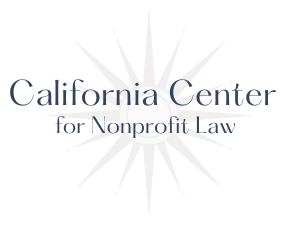
Ninth Circuit Decision in Huntsman v. Corporation of the President of the Church of Latter-Day Saints
The U.S. Court of Appeals for the Ninth Circuit recently affirmed the summary dismissal of Huntsman v. Corporation of the President of the Church of Latter-Day Saints. In this case involving church autonomy, the court unanimously reached a decision; two blocks of judges differed on whether the decision should rest on the church autonomy doctrine or common law fraud principles.
The California Center for Nonprofit Law is here to advise you about developments in laws and government policies that affect your church or public charity. Contact our office to learn more about these and other important issues necessary to keep your organization operating smoothly and complying with all federal, state, and local laws.
The Facts of Huntsman
Members of the Church of Latter-Day Saints tithe or contribute 10% of their annual income to the Church. Huntsman engaged in tithing for 22 years, contributing over $1 million in cash and thousands of stock shares of his family’s corporation and another company. In 2015, Huntsman stopped tithing and withdrew his membership from the Church, as he no longer supported Church doctrine.
David Nielsen filed a whistleblower complaint against the Church for allegedly misusing tithes for commercial ventures, such as funding the City Creek project and rescuing Beneficial Life. When Huntsman became aware of Nielsen’s complaint, he demanded that the Church return all he had tithed. The Church refused, and Huntsman filed suit, claiming that the Church had committed fraud in using the funds for commercial purposes while representing that they were not doing so.
Procedural Background
The Church moved for summary judgment, arguing that it had made no misrepresentations, stating that it had used earnings on invested reserves, not directly tithed funds, to support its commercial endeavors. The Church pointed out that Huntsman could produce no specific misrepresentations to support a fraud claim. Alternatively, the Church argued that it was entitled to summary judgment on Huntsman’s claim based on the church autonomy doctrine, which is rooted in the First Amendment. The federal district court granted the Church’s motion for summary judgment.
A three-judge panel of the Ninth Circuit overturned the trial court’s grant of summary judgment and reinstated a portion of Huntsman’s claim. However, the Church requested a hearing en banc before the full Ninth Circuit, which resulted in a unanimous decision to uphold the dismissal of the suit. However, the judges used very different reasoning to reach that result.
The Ninth Circuit Decision
The six-judge majority ruled that reliance on the church autonomy doctrine was misplaced. The church autonomy doctrine, the judges explained in their opinion, concerns only controversies over Church doctrine or policy matters. Huntsman’s fraud claim had no bearing on Church doctrine or policy, so the church autonomy was inapplicable to the case.
However, four judges agreed that Huntsman’s fraud claim fell squarely within the church autonomy doctrine. They viewed the lawsuit as a covert attempt to challenge the Church’s belief system. These judges believed the majority should have relied solely on the church autonomy doctrine in its decision. According to these judges, the application of the doctrine justified the dismissal of the lawsuit.
One judge also contributed a separate concurrence to express his alarm at the majority’s failure to rely on the church autonomy doctrine. This judge saw the doctrine as a “threshold structural bar that must be reckoned with.”
Contact Us Today for Legal Advice and Assistance
The California Center for Nonprofit Law concentrates its practice on legal matters that affect churches, charities, and other nonprofit organizations in California. Our unique focus allows us to keep ahead of constant local, state, and federal laws and policies as they develop over time. We are here to represent the interests of your nonprofit organization throughout every stage of your legal matter. Call us at (949) 892-1221, email us at info@NPOlawyers.com, or fill out our contact form online and schedule a consultation about your nonprofit organization today.
